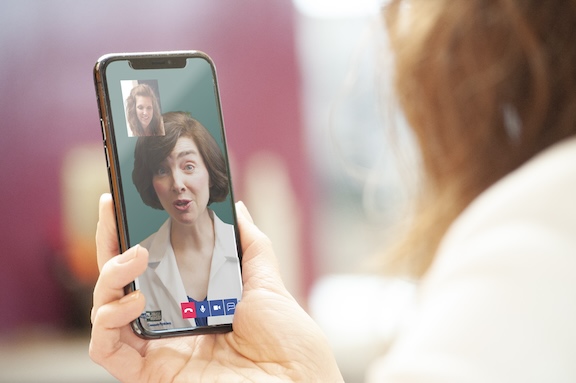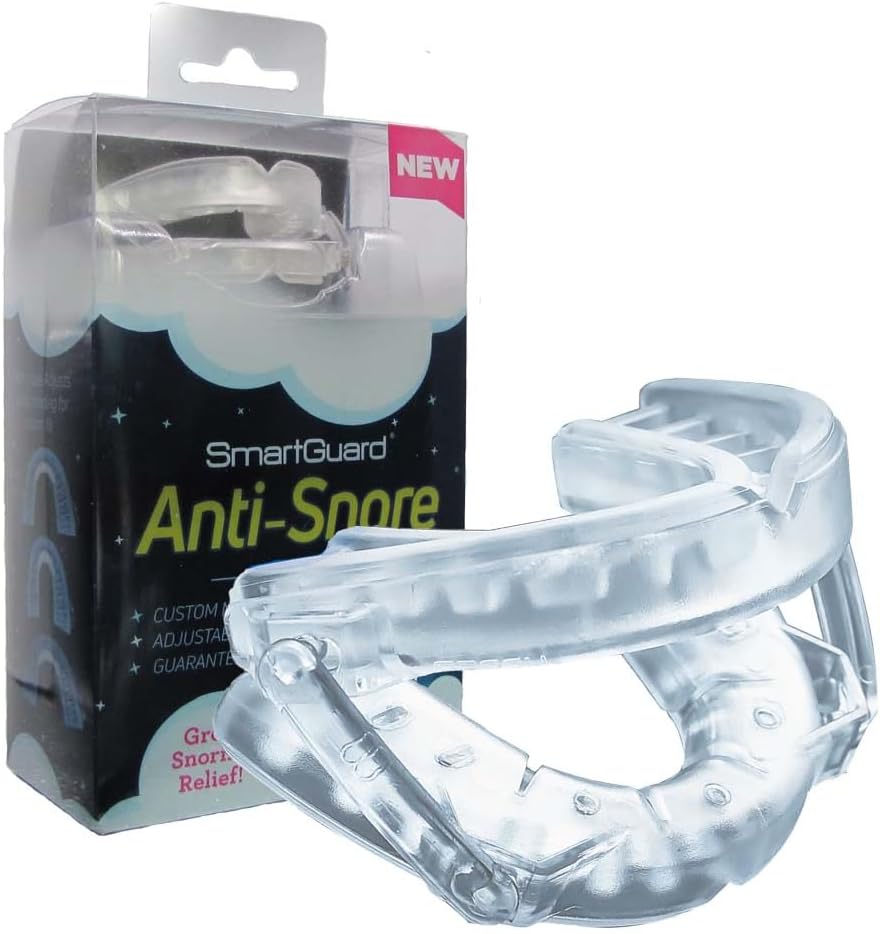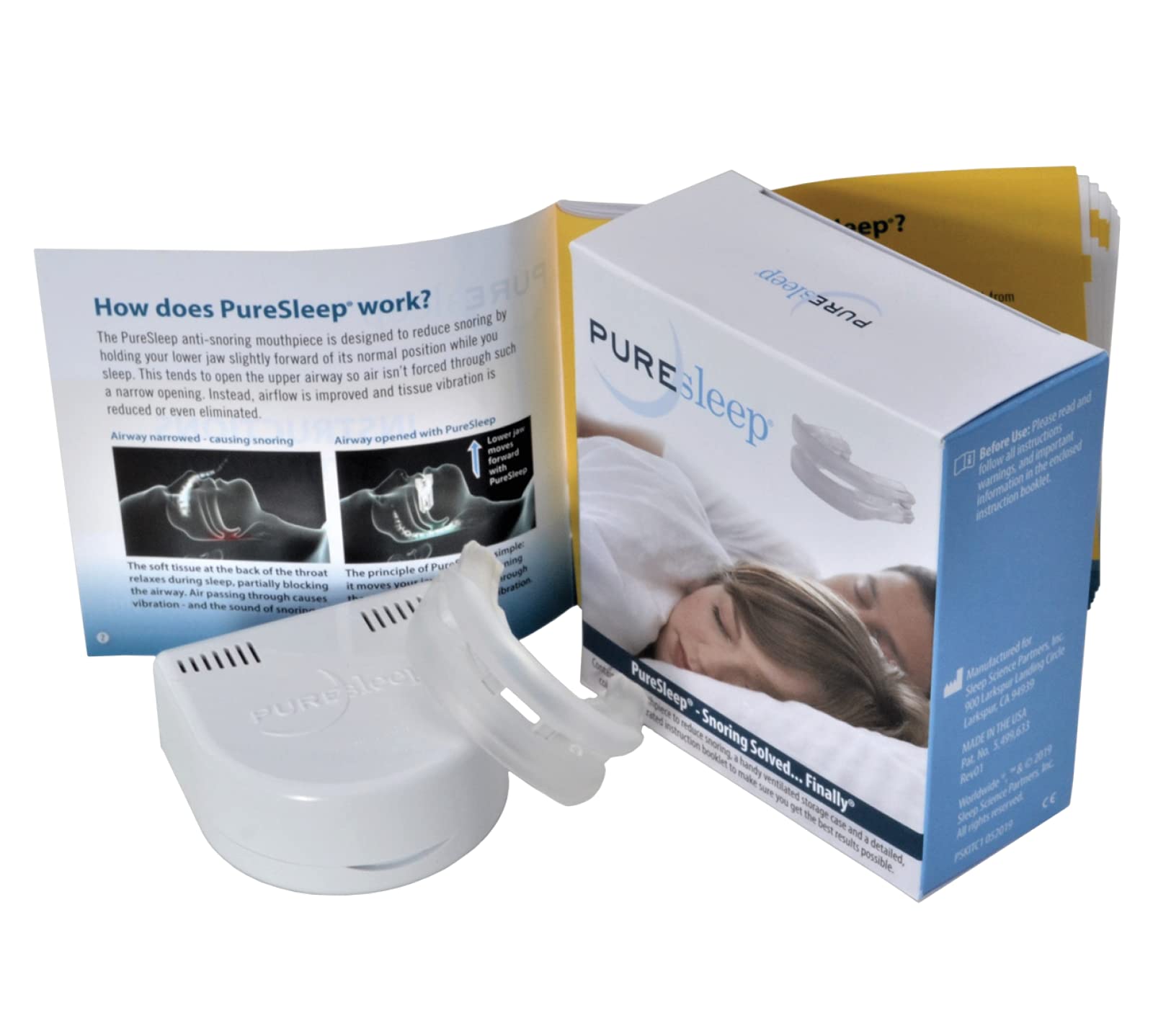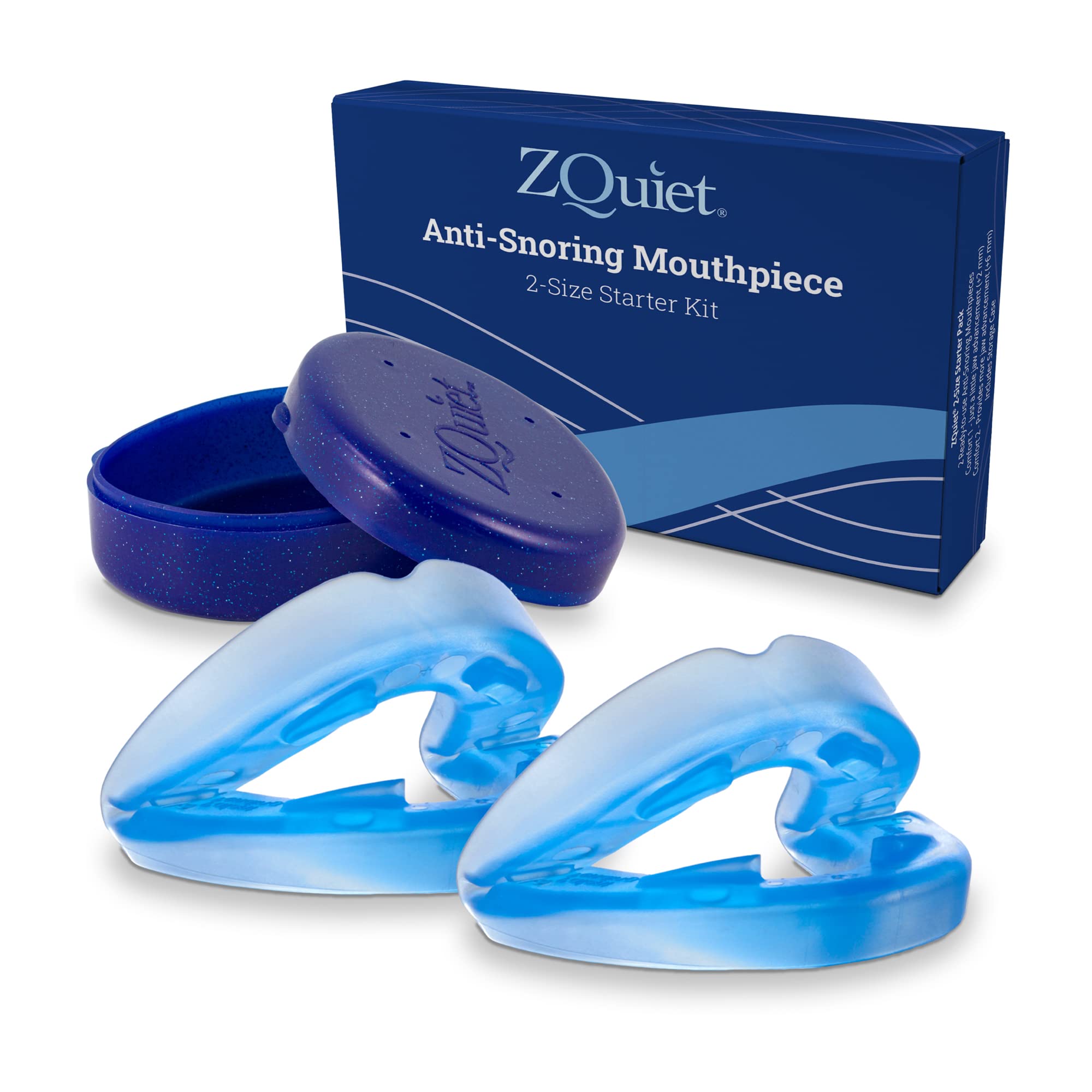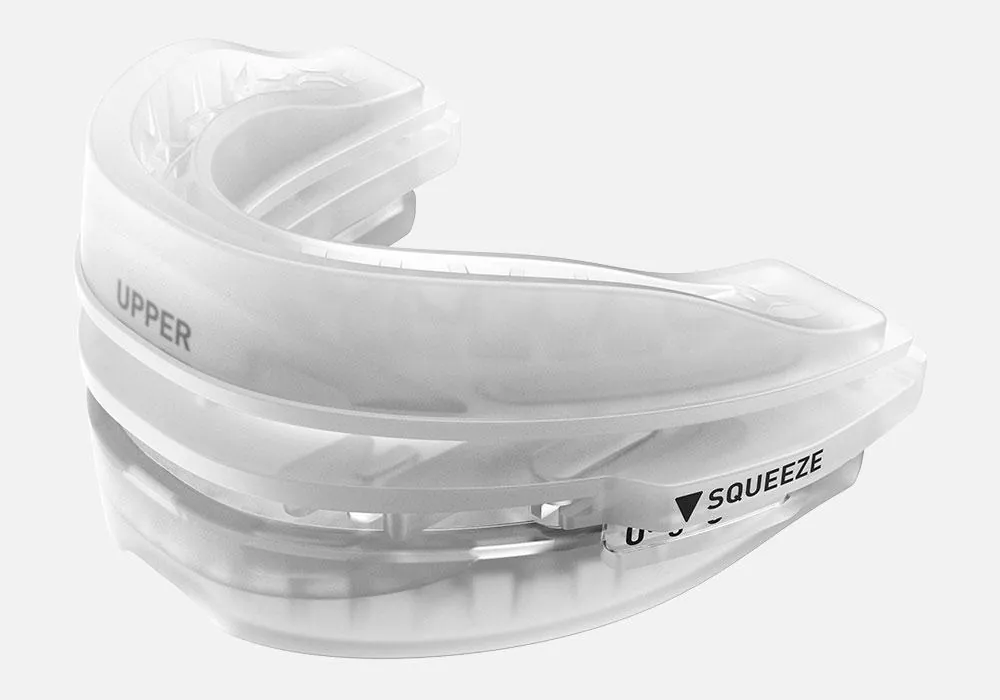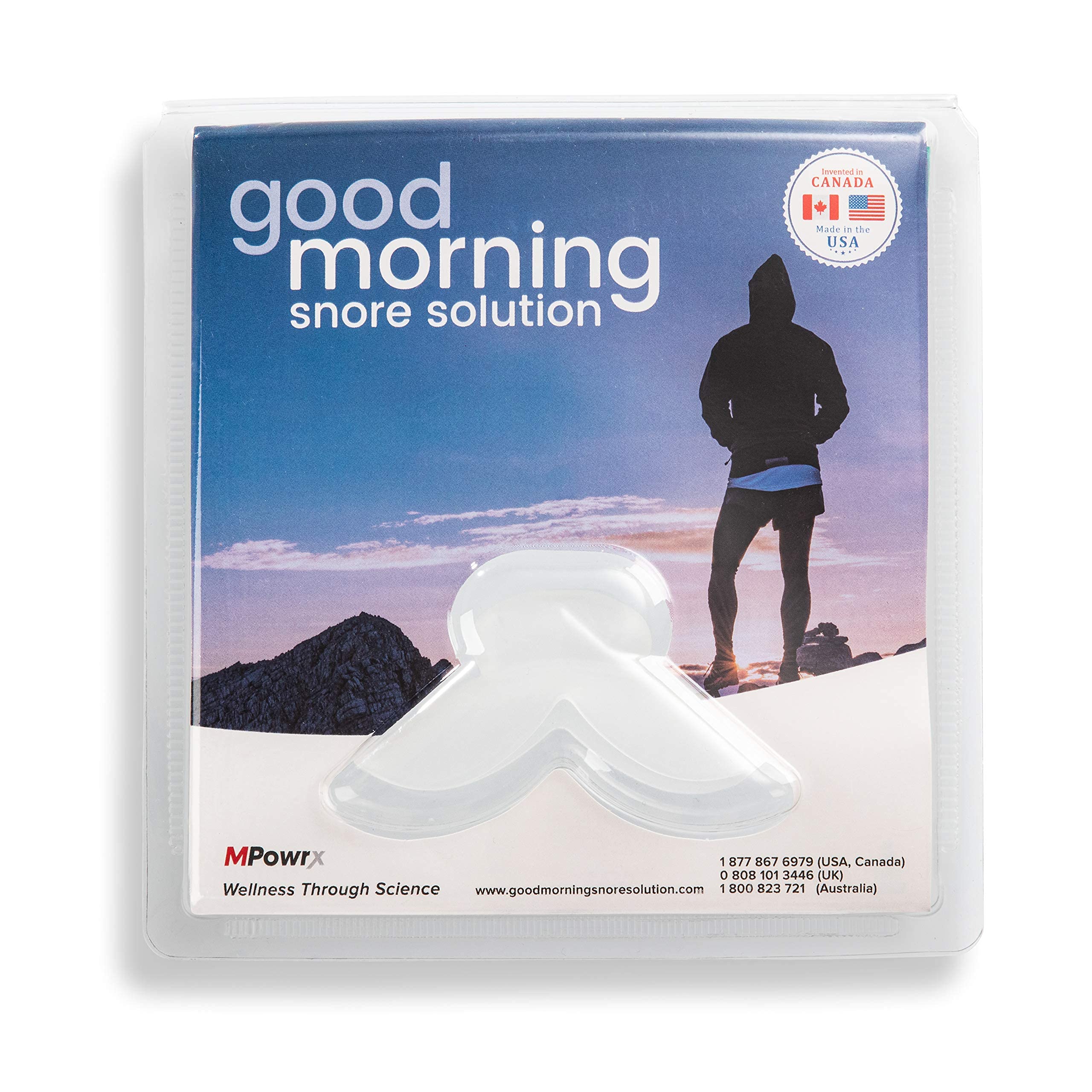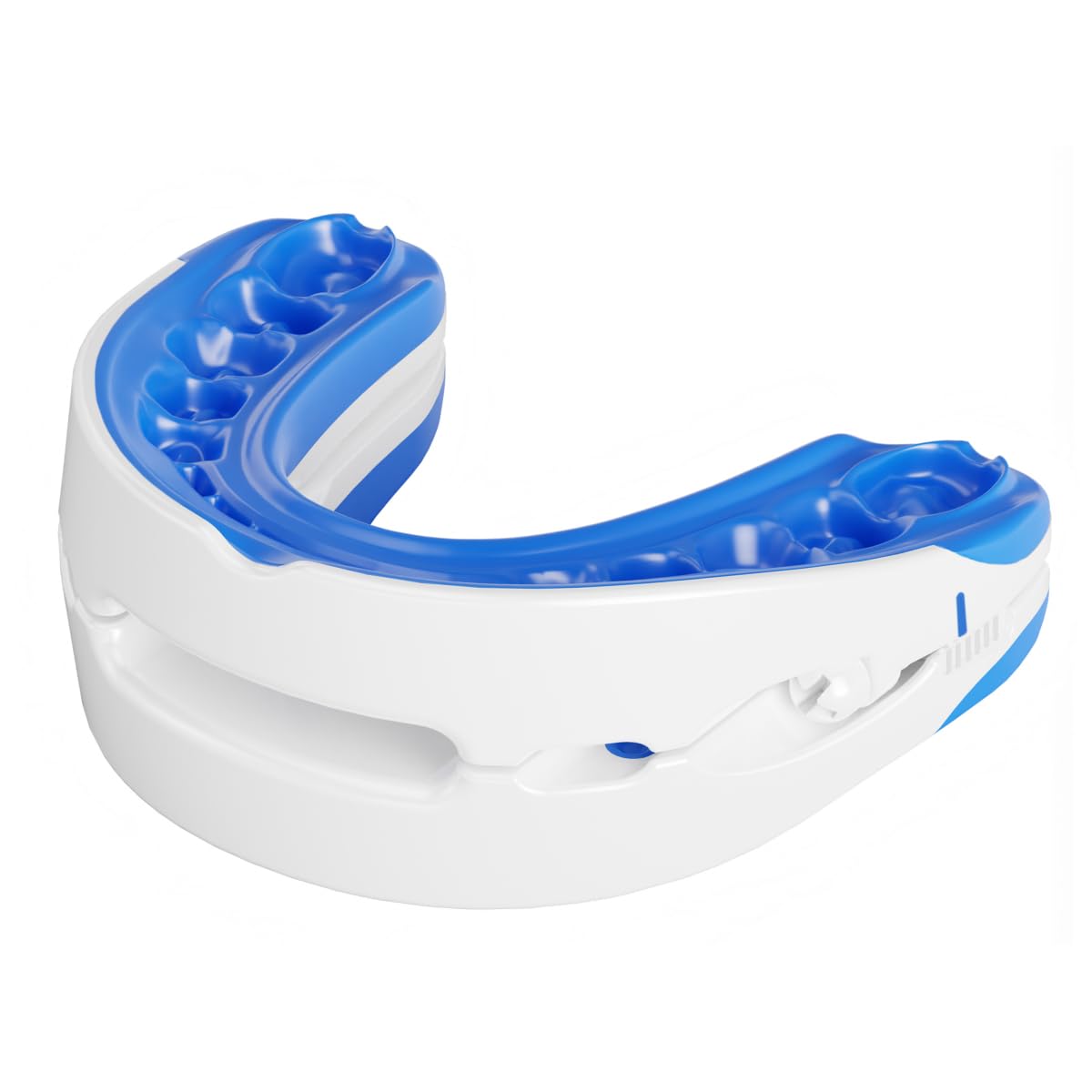Mouthguards
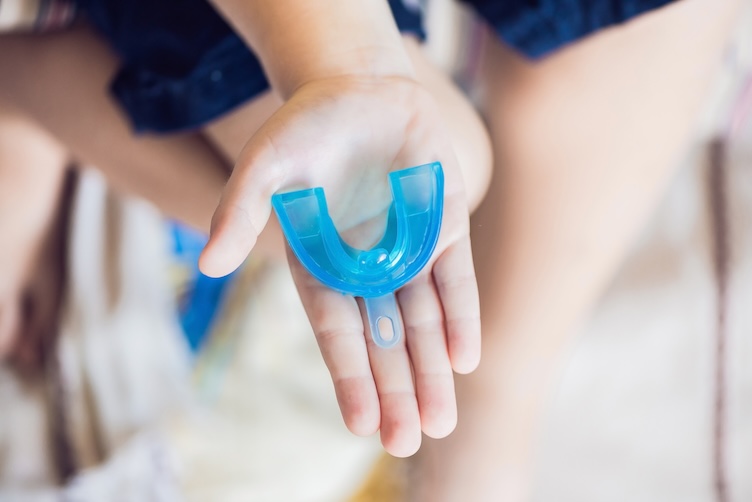
If your upper airways occasionally become blocked at night, you might suffer from snoring – or a more serious condition called Obstructive Sleep Apnea.
A mouthguard (technically called a mandibular advancement device) might be a simple solution to snoring and some mild cases of obstructive sleep apnea. For some people, they can help open airways to decrease snoring and breathing issues.
See how your sleep quality stacks up.
Start here to get a baseline on how well you sleep and where you can improve.
Healthy Breathing and Sleep
When you sleep at night, the position of your mouth – and your head – can lead to blocked airways, causing snoring and sleep apnea.
How Mouthguards Work
Mouthguards adjust the lower jaw forward, opening your airways and making it easier to breathe. They’re a simple, inexpensive solution for snoring and moderate sleep apnea.

Preparing for a Conversation with a Sleep Doctor
Meeting with a sleep doctor can be an ideal way to understand and address problems you’re experiencing with sleep. It’s important to go to that appointment prepared. Learn what to know and do to get the most out of this valuable consultation.
Learn MoreHow to Choose a Mouthguard
- Tongue Stabilization: Consider tongue stabilization options, which may be preferable if you have dental issues.
- Comfort: Ensure the mouthpiece fits snugly yet comfortably, without causing jaw pain or breathing difficulties.
- Adjustability: Some devices offer adjustable features for a personalized fit.
- Ease of Use: Look for easy-to-wear and clean options.
- Price and Warranty: Compare costs and warranty terms to find the best value.
- Consumer Reviews: Note that many of these devices have very mixed consumer reviews. This is likely due to the fact that they are not right for everyone. If in doubt, please seek advice from a doctor.
Different Types of Mouthguards
- Mandibular Advancement vs. Tongue Stabilization: Choose between mandibular advancement devices that reposition the lower jaw forward and tongue stabilization devices that prevent the tongue from blocking the airway.
- Boil-and-Fit vs. Ready-to-Use: Decide between boil-and-fit mouthguards for a custom fit or ready-to-use options.
- Micro Adjustable vs. Standard Adjustments: Consider micro-adjustable devices for more precise fitting or standard adjustment options for basic customization.
- Teeth Sensitivity or Dental Work: Ensure the mouthguard is comfortable or safe if you have teeth sensitivity or existing dental work.
Who Might Benefit from a Mouthguard
- Snore Sufferers: These devices gently reposition the jaw or tongue to open the airway, which can reduce snoring in some people.
- People with Sleep Apnea: Mild to moderate cases of sleep apnea may find success with mouthpieces.
Who Would Not Benefit from a Mouthguard
- Individuals with severe temporomandibular joint (TMJ) disorders.
- People with dental issues.
- Those with central sleep apnea.
- Individuals with severe respiratory disorders.
- Children and adolescents.
- People who are unable to tolerate foreign objects in the mouth.
- Individuals with limited manual dexterity.
- People with severe snoring or sleep apnea unresponsive to MADs.

Relevant Research - Mandibular Advancement Devices
Mouthguards, particularly mandibular advancement devices (MADs), have shown efficacy in treating snoring and mild to moderate obstructive sleep apnea (OSA). They are recognized as a viable first-line therapy, especially for patients who cannot tolerate CPAP therapy. One study highlights their effectiveness in improving sleep quality and reducing daytime sleepiness, particularly in public transport drivers with OSA, demonstrating their positive impact on daily functioning (Sleep Science). Additionally, research on MADs indicates short-term improvements in sleep bruxism scores and sleep quality, reinforcing their benefits in sleep-related applications (Journal of Prosthetic Dentistry). While these findings support the use of mouthguards for snoring and OSA, professional consultation is advised before starting MAD therapy, considering the need for personalized fitting and potential long-term side effects (Sleep Science).
